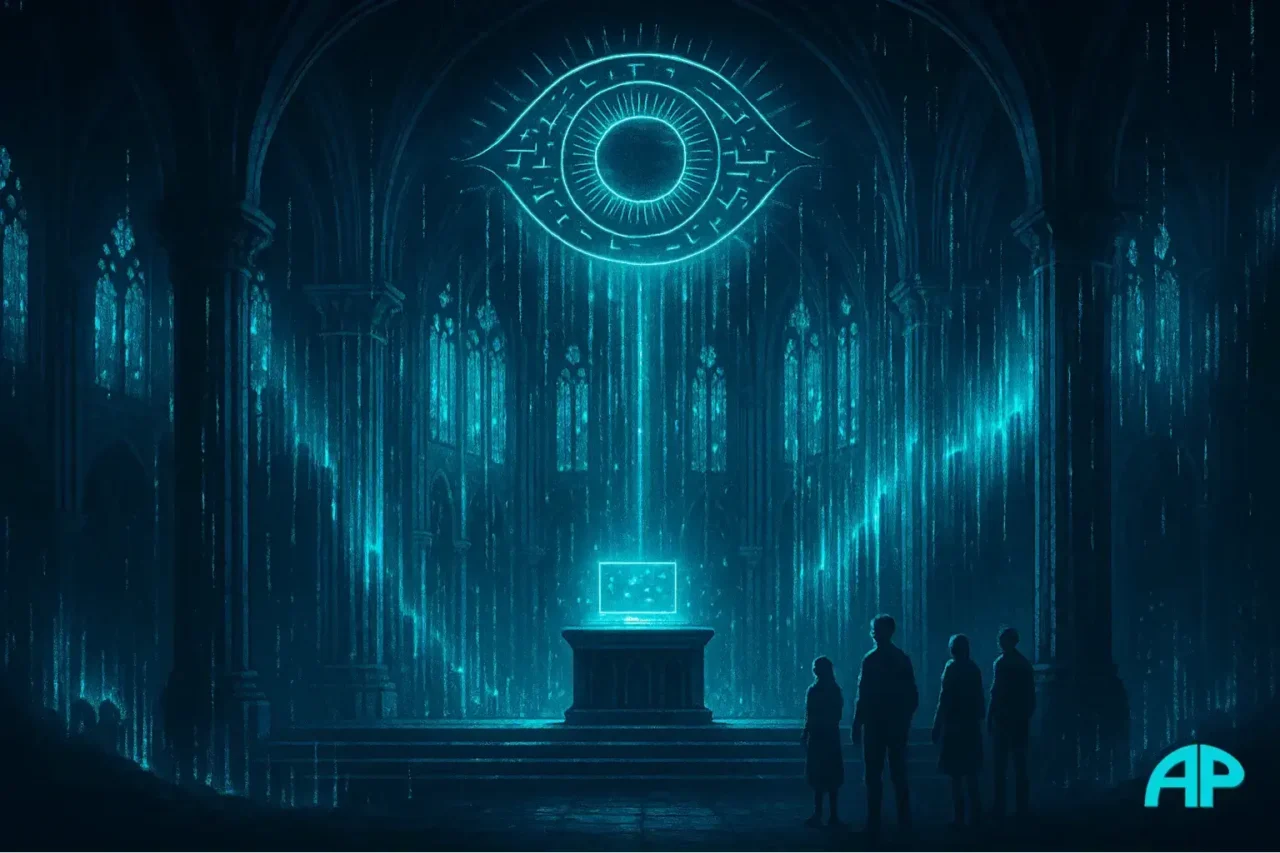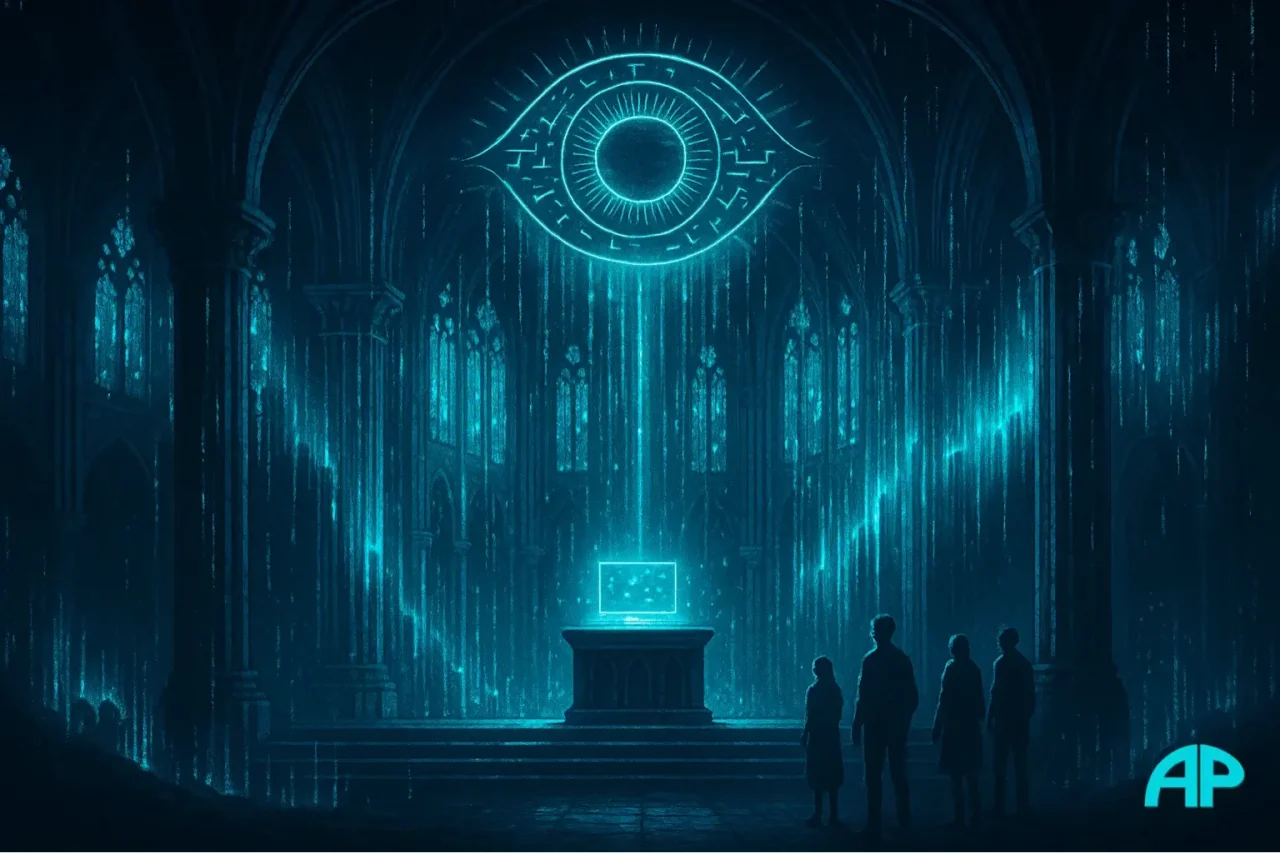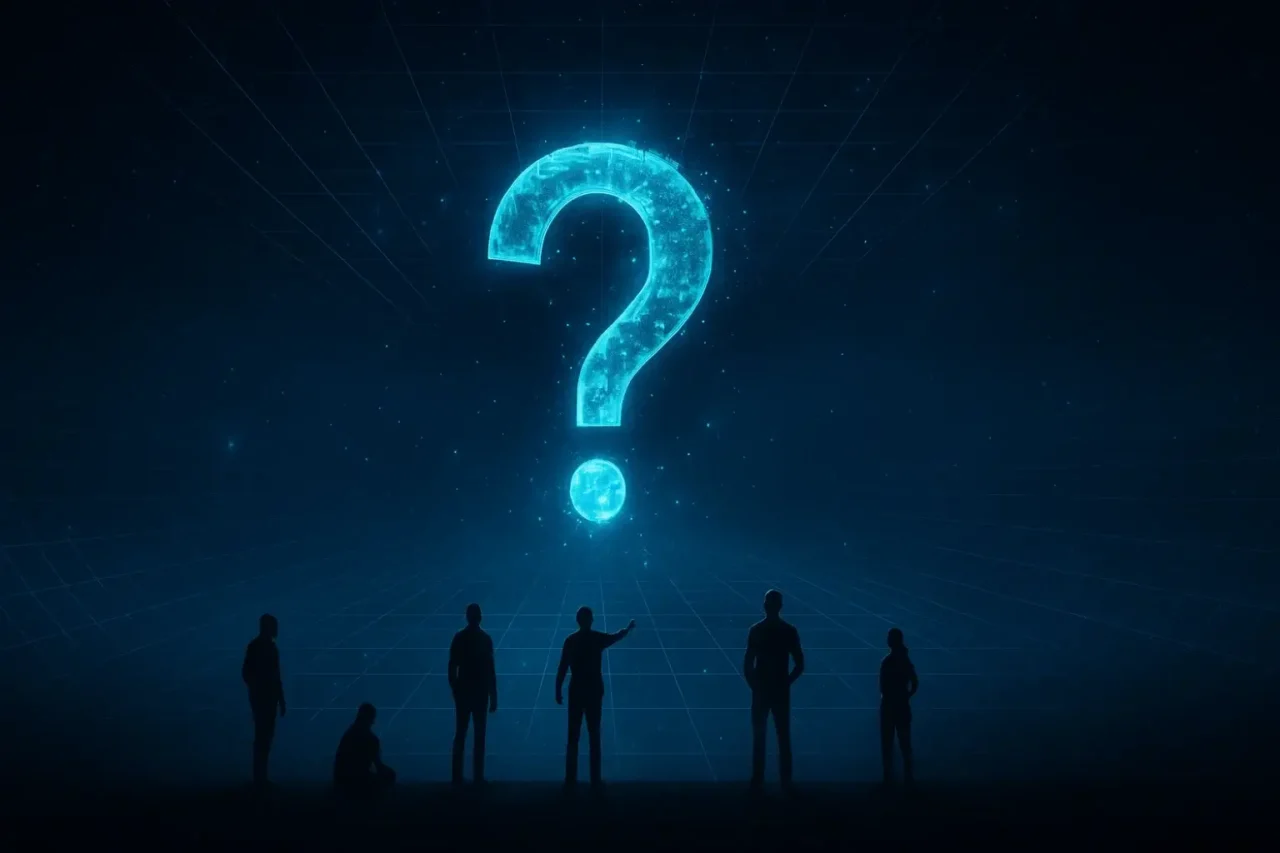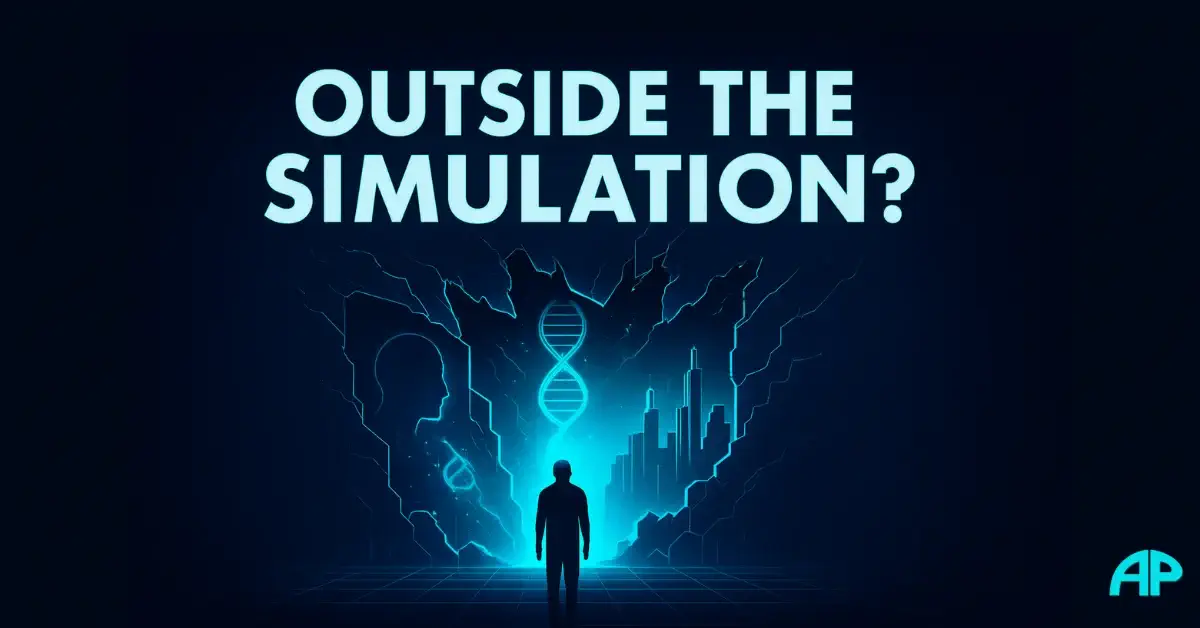Introduction: The Glitch in the Matrix
Table of Contents
- Intro: The Glitch in the Matrix
- What’s Outside the Simulation?
- Nature of Reality Outside the Matrix
- The Theological Angle: God or Code
- Human Response to Living in a Sim
- The Unanswerable Question of Reality
Introduction: The Glitch in the Matrix
What’s outside the simulation is the question that defines our existence. If we are living in a simulation, then the bigger mystery is not the system itself but what lies beyond it. Is there a base reality waiting outside the matrix? Or are we destined to keep cycling until we reach the end of the simulation?
We all feel the strangeness from time to time. The déjà vu that repeats like a line of code. The coincidences that seem too precise to be random. The suspicion that reality is not as real as it appears. The simulation hypothesis has moved from science fiction into mainstream debate among scientists, philosophers, and thinkers across the world.
Accepting the idea of a simulated reality is just the first step. The deeper question, and the one that shapes everything, is what—or who—is outside the simulation.
What’s Outside the Simulation?
Before we can explore theories of what’s outside the simulation, we need to ask why it exists at all. The motive of the creator reveals clues about the nature of the outside world.
The Ancestor Simulation and Base Reality
Nick Bostrom’s famous theory suggests we are living in a simulation created by future humans. They might run countless digital versions of their ancestors to study history. If that is true, then the outside is simply base reality, inhabited by a civilization so advanced they appear godlike to us.
The Scientific Experiment Outside the Matrix
Another theory is that we are part of a grand experiment. Every struggle, triumph, and collapse is data for researchers. In this case, the outside is not a paradise but a sterile laboratory where we are studied like test subjects.
The Entertainment Hypothesis and Our Role
What if our emotions, struggles, and joys are the ultimate drama? Perhaps the outside is a society that seeks entertainment far richer than its own reality. For them, our lives are the story. We are the characters in the greatest show in existence.
The Prison Theory and Breaking Free from the System
The darkest option is that life is a prison. A simulation designed as a containment system for troubled minds or souls. If true, then breaking free from the system is not just about escaping social control, it is about proving we are ready for freedom in whatever lies beyond.
The Nature of Reality Outside the Matrix
If we are living in a simulation, then what’s outside the simulation may not follow the same rules. Time, matter, and even consciousness could work differently.

Higher-Dimensional Worlds Beyond the Matrix
Our four dimensions might be a shadow of something greater. To beings in base reality, our universe could look like a hologram. Miracles and quantum strangeness may be the side effects of their higher-dimensional world brushing against ours.
A Realm of Pure Consciousness Outside the Simulation
Another possibility is that the outside is not physical at all. Imagine a place where thought and intention create reality. If this is true, then our lives are a shared dream, and waking up means realizing we are more than avatars inside the code.
Infinite Regression and the End of the Simulation
What if there is no final exit? If our creators are also in a simulation, then their creators might be too. Instead of finding the end of the simulation, we could face an endless series of nested realities with no clear base reality.
The Unknown Unknowns of Base Reality
Finally, we must admit that we may not be able to imagine what is outside the simulation. Just as a fish cannot picture the desert, our minds may not be wired to grasp realities beyond the matrix. That does not mean they are not there—it only means we have not yet evolved to see them.
The Theological Angle and the End of the Simulation

Asking what’s outside the simulation echoes humanity’s oldest questions about God and creation. The parallels between religion and simulation theory are striking.
God as Creator, Programmer, and Architect
- The Creator: In religion, God brings reality into being. In simulation theory, the architect launches the code.
- Omniscience: God is all-knowing. A programmer sees every line of data and every thought inside the system.
- Omnipotence: God is all-powerful. A programmer can reset worlds, rewrite rules, or insert miracles.
- Immanence and Transcendence: God exists both within the world and beyond it. So does the architect of the simulation.
Maybe God and Programmer are two words for the same role. Asking about the end of the simulation might be the same as asking whether we can ever know the mind of God.
The Human Response to Living in a Simulation
If we are truly living in a simulation, how should we respond? Do we surrender to nihilism or choose to live with greater meaning?
The Quest for Knowledge Inside the Simulation
Science becomes an attempt to reverse-engineer the code. Physics, mathematics, and quantum mysteries may all be clues pointing toward the structure of the system.
The Importance of Experience in Base Reality
If this simulation exists to generate data, then every human experience matters. Love, awe, curiosity, and even suffering could be the very reasons the simulation was created.
The Ethical Imperative of Shared Existence
Recognizing that we all share the same program deepens empathy. No one is less real than anyone else. We are all characters in the same unfolding story.
Breaking Free from the System Within the Matrix
Even if we cannot escape the simulation itself, we can choose freedom inside it. Breaking free from the system means rejecting fear, lies, and imposed control. It means creating our own meaning and living as active players, not passive participants. For a deeper dive into this idea, read Unplug from the Matrix: Escape the Illusion Controlling You.
The Unanswerable Question Beyond Base Reality

We may never know for certain what’s outside the simulation. Our perception may always be limited to what the code allows. But the question itself is powerful. It fuels curiosity, creativity, and the search for truth.
Perhaps the purpose is not to break into base reality but to awaken to our potential within this one. Meaning may not be handed down from outside the matrix. Meaning is created by the choices we make here.
So the next time you sense a glitch or stare into the stars, let the thought return. The real mystery is not just whether we are living in a simulation. The real mystery is what is outside the simulation. That question may never be answered, but it defines what it means to be human.


